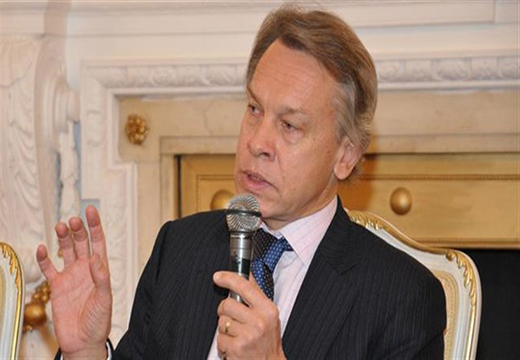Supplies of Russian S-300 air defense missile systems to Iran may begin any moment in line with the relevant decree signed by the Russian president earlier in the day, presidential spokesman Dmitry Peskov said on Monday.
Russian President Vladimir Putin signed a decree on Monday to lift the ban on the supplies of S-300 air defense missile systems to Iran. The ban was imposed in 2010.
“The decree stipulates… no delays,” Peskov told journalists adding that the second provision of the decree states that “it comes into force on the day it was signed.”
Putin’s decision on Monday to lift embargo on the deliveries of S-300 air defense missile systems comes in the wake of progress achieved at the Iran nuclear talks in Switzerland over a week ago paving the way for the international community to gradually lift sanctions against the Islamic Republic.
Peskov said that today’s official commentary by Russian Foreign Minister Sergey Lavrov on the possible supplies of S-300 air defense missile systems to Iran ‘fully reflects our [Kremlin’s] position.’
Lavrov said earlier in the day that Russia’s voluntary embargo on deliveries of S-300 air defense missile systems to Iran was no longer in need due to progress in the resolution of the situation around Iran’s nuclear program.
“Initially, the decision to suspend the implementation of the contract, which was already signed and came into force, was made in September 2010,” Lavrov said. “It was done in the interests of support for consolidated efforts of the six international negotiators to stimulate a maximally constructive process of talks on settlement of the situation in regard to the Iranian nuclear program.”
According to Tass news agency, the minister particularly stressed that ‘it was done absolutely voluntarily.’
“Resolution 1929 of the Security Council, which was approved in 2010, just like any other UN resolutions did not impose any restrictions on deliveries of air defense weapons to Iran. I will emphasize, it was done in the spirit of goodwill to stimulate progress at the talks,” he said.
This year, Lavrov continued, the six international negotiators, after a regular round of talks with Iran, ‘stated’ on April 2 in Lausanne ‘substantial progress in settling Iran’s nuclear problem.’
“The P5+1 stated progress in the settlement of Iran’s nuclear program. Political frameworks of the final agreement were coordinated. They received a high assessment everywhere on the international arena,” he said.
[…]
“This result was in many respects achieved because the six international negotiators worked in a consolidated manner on political settlement of the serious problem,” he said. “We are convinced that at this stage, there’s no more need of such an embargo, Russia’s separate voluntary embargo.”
“S-300 is an air defense missile system, which is of a purely defensive nature. It is not designed for attacks and will not put at risk the security of any regional state, including Israel, of course,” Lavrov said.
“Meanwhile, for Iran, taking into account the very tense situation in the region surrounding it, modern air defense systems are very important,” he said.
“This is in particular proven by fast alarming development of events in the past week of the military situation around Yemen. Of course, we couldn’t but take into account commercial and reputational aspects too. As a result of contract suspension, Russia did not receive large sums we were to have received,” Lavrov said.
“We see no more necessity in doing that, taking into account progress in the talks on settlement of the Iranian nuclear program and an absolutely legitimate nature of this forthcoming deal,” he said.
[…]
